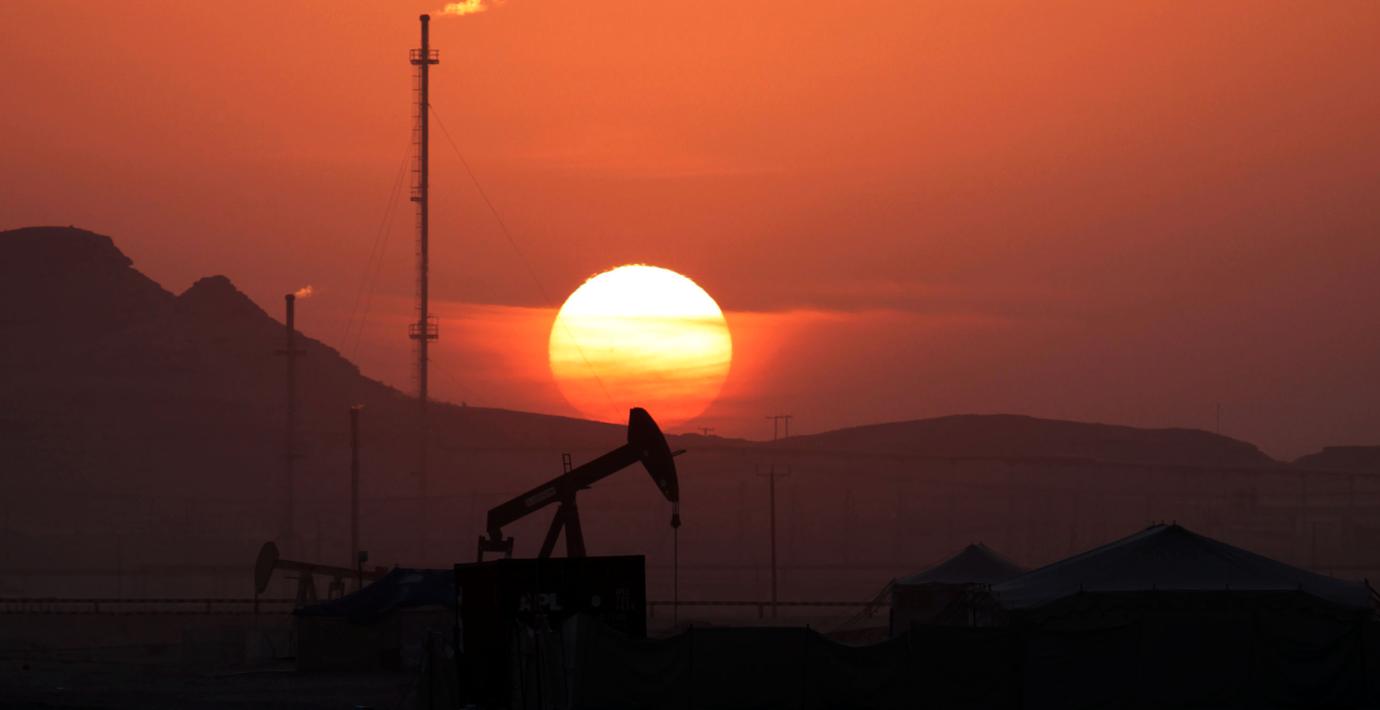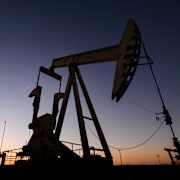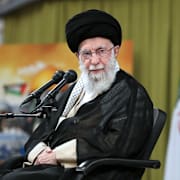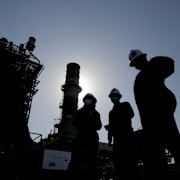
Iran avråder Opec-länder från att agera på eget bevåg
Efter uppgifterna om att rivalen Saudiarabien har ökat sin oljeproduktion till rekordnivåer den här månaden varnar Iran länderna i oljekartellen Opec från att agera egen hand. Enligt Iran riskerar ensidigt agerande att underminera enigheten inom organisationen, skriver Reuters.
Förenade Arabemiratens oljeminister, tillika ordföranden för Opec, Suhail al-Mazrouei, uppmanas i ett brev från sin iranska motsvarighet att påminna alla kartellens medlemmar om att de kvoter Opec infört är tvingande.
”Produktionsökningar som går utöver de åtaganden som följer av Opecs beslut [...] står i strid med avtalet”, skriver Irans oljeminister Bijan Zanganeh i brevet.
bakgrund
Opec
Wikipedia (en)
The Organization of the Petroleum Exporting Countries (OPEC, OH-pek, or OPEP in several other languages) is an intergovernmental organization of 15 nations, founded in 1960 in Baghdad by the first five members (Iran, Iraq, Kuwait, Saudi Arabia, and Venezuela), and headquartered since 1965 in Vienna, Austria. As of 2018, the 15 countries accounted for an estimated 44 percent of global oil production and 81.5 percent of the world's "proven" oil reserves, giving OPEC a major influence on global oil prices that were previously determined by the American-dominated so-called "Seven Sisters” grouping of multinational oil companies.
The stated mission of the organization is to "coordinate and unify the petroleum policies of its member countries and ensure the stabilization of oil markets, in order to secure an efficient, economic and regular supply of petroleum to consumers, a steady income to producers, and a fair return on capital for those investing in the petroleum industry." The organization is also a significant provider of information about the international oil market. The current OPEC members are: Algeria, Angola, Ecuador, Equatorial Guinea, Gabon, Iran, Iraq, Kuwait, Libya, Nigeria, Qatar, the Republic of the Congo, Saudi Arabia (the de facto leader), United Arab Emirates, and Venezuela. Indonesia is a former member. By continent, two are South American, seven African, and six are Asian (Middle East). Two-thirds of OPEC's oil production and reserves are in its six Middle-Eastern countries that surround the oil-rich Persian Gulf.
The formation of OPEC marked a turning point toward national sovereignty over natural resources, and OPEC decisions have come to play a prominent role in the global oil market and international relations. The effect can be particularly strong when wars or civil disorders lead to extended interruptions in supply. In the 1970s, restrictions in oil production led to a dramatic rise in oil prices and in the revenue and wealth of OPEC, with long-lasting and far-reaching consequences for the global economy. In the 1980s, OPEC began setting production targets for its member nations; generally, when the targets are reduced, oil prices increase. This has occurred most recently from the organization's 2008 and 2016 decisions to trim oversupply.
Economists often cite OPEC as a textbook example of a cartel that cooperates to reduce market competition, but one whose consultations are protected by the doctrine of state immunity under international law. In December 2014, "OPEC and the oil men" ranked as #3 on Lloyd's list of "the top 100 most influential people in the shipping industry". However, the influence of OPEC on international trade is periodically challenged by the expansion of non-OPEC energy sources, and by the recurring temptation for individual OPEC countries to exceed production ceilings and pursue conflicting self-interests.
Omni är politiskt obundna och oberoende. Vi strävar efter att ge fler perspektiv på nyheterna. Har du frågor eller synpunkter kring vår rapportering? Kontakta redaktionen



